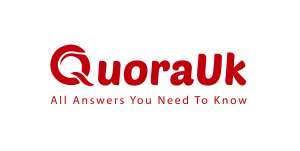Business
How To Refinance A Home Loan Cheyenne?
The home Loan team has put together the definitive guide to buying a property with the aid of our mortgage loan specialists and lending partners. We firmly believe that anyone looking for a new house should start with this guide even though it was creating for beginners.
We are so certain that it will be your most helpful tool prior to, throughout, and even after the home-buying process. Start your Home Loan purchasing process with the knowledge and assurance you need to secure the house of your dreams at the ideal interest rate for your new mortgage.
Organize Your Financial Profile To Get Ready For The Home Buying Process
The next step for potential house buyers should be to create and maintain their financial profile. It takes some effort to fully understand your refinancial situation, but in the long run, doing so is essential to making a successful house purchase. There are a few things you should gather in order to better comprehend your financial situation.
Recognizing Your Credit

The most crucial information that will request from you during the procedure is your FICO credit score. What is a credit score, then?
Basically, a credit score is a number between 300 and 850 that expresses a person’s creditworthiness based on all credit and debt records connected to that person that are currently available. The strength of your credit is sit it by the levels of the scale. Usually, these credit levels are separate into the following categories:
Credit Score Detail
One of the main credit reporting agencies, such Equifax or Transunion, is the first (and most popular) place to check your credit. These websites offer “hard pulls” of not only your credit score but also your whole financial history. Important information: Hard pulls need your permission and can harm your credit rating. Therefore, it is not advice for borrowers to do this kind of search if they are unsure of their overall credit standing.
Making advantage of a website like Credit Karma is the second approach. These “soft pulls” smaller credit checks are frequently include in broader background checks and are refer to as “soft pulls.” Soft pulls are different from hard pulls in that they don’t appear on your credit report. By
The first thing you should do after receiving the results of either the hard or soft pull is to check the report for errors. To make sure there are no errors, compare it to any personal records you may have. Make certain in particular that:
- All identifiable information is accurate.
- All credit requests are truthful.
- The credit report’s dates are accurate and don’t go back further than seven years.
- Payments that are overdue or delinquent are exact and correspond to your records.
You may rely on the correctness of the credit score given to you if your credit report is in order. Consider your credit score throughout the entire house loan process because several loan products have various credit requirements.
Few Strategies To Raise Your Credit Score:
There are a few strategies to raise your credit score by a few extra points if it isn’t at the required level. Keep in mind that these procedures take time, and there isn’t truly a quick repair for bad credit. But if you’re wanting to purchase a home Loan, waiting until you’re satisfed with the mortgage deal you wind up with is one of the finest things you can do. You may improve credit ratings by:
- Paying off debt promptly and never missing a payment
- Paying more than the required minimum
- maintaining a good balance of debt commitments (i.e., car loan, credit card, store credit, etc.)
- Settling debts
What Number Of Homes Can You Afford?

The main purpose of knowing your budget is to assist you in determining the size of the mortgage loan that you can afford. Mortgages are long-term loans, therefore even if no one can predict the future; it’s always a wise decision to prepare for it. The biggest monthly payment a person or household must make is likely a mortgage. There are a few important factors to consider when assessing a home Loan affordability:
Income – The first thing you want to determine is how much money you make on a regular basis. This includes your salary and any earnings from investments you may have earned.
Add up all of your recurring monthly bills and debts. Include all of your outgoing expenses, including your cost of living, as well as any credit card debt you may have.
Money that set aside or that can be save. The upfront charges, such as closing costs, mortgage insurance premiums (MIPs), and the down payment, as necessary, would be paid for using this.
Credit – Your credit history has a significant impact on the interest rate you qualify for, which in turn has an impact on the monthly payment you must make.
Once you’ve taken into consideration everything mentioned above, it’s just a simple math problem: divide your monthly income by your total debt payments and costs to determine your remaining funds.
Loan Preapproval For Your Home Loans
A pre-approval letter informs potential sellers of your seriousness regarding a house purchase. You can even be given preference over potential borrowers who lack preapproval letters. Additionally, lenders will be able to provide you with quotes that are much more precisely tailored to your circumstances.
An examination of your financial history is necessary for a lender to issue a preapproval letter. Lenders frequently require the borrower to supply the required papers in order to do this properly. This comprises, but is not restricte to:
- A driver’s license, address, Social Security number, and marital status are examples of personal data.
- recent bank and investment account statements (usually the most recent 2 years)
- information about employment
- W-2 income tax forms from the previous two years and recent pay stubs
- total monthly spending, including regularly paid bills
- List of all possible assets (including cash, bonds, stocks, 401(k)s, and IRAs) and liabilities (any debt obligations like credit cards, student loans, or car loans)
- If you work for yourself, provide profit and loss statements.
- any rental property earnings
- If you’re using a financial gift from a family member to assist pay for the down payment
As many of these documents are also needed for the last few procedures, gathering them in advance will save a tone of stress during closing.
Be Aware Of Your Home Loan Options

Get acquainted with the many sorts of mortgage alternatives before you begin looking for lenders. Although it’s ideal to maintain an open mind during the home-buying process, you can still start with a goal in mind. Mortgage loans are after all long-term arrangements. When looking around for a home loan, being knowledgeable about the various lending programmers and interest rate structures will only help you.
Choosing between an adjustable-rate mortgage (ARM) and a fixed-rate mortgage (FRM) is the first thing you should do (ARM). Depending on what you’re looking for in a house loan, no one option is necessarily superior than another. Here is a brief explanation of ARMs and FRMs for those who are unclear.
Establish A Budget For Your Home Purchase And Start Saving.
Lenders are aware that just because you want a $10 million property in Hollywood or Manhattan does not necessarily mean you can afford one. Because of this, the price of the home Loan you can purchase is typically constrained by your monthly income. For instance, traditional loan providers often forbid mortgage payments from exceeding 28% of a borrower’s monthly income. FHA loans have a cap of 31% of a borrower’s monthly income, making them slightly more pliable. Check out our mortgage calculator to estimate your potential monthly payments. You can determine your house buying budget under a number of conditions by comparing that to your monthly income.
It’s critical to know how much you can afford, but it’s also crucial to have some money set aside. Unless you qualify for a VA loan, which needs no down payment. You will need to put down money, which is typically between 10 and 20 percent of the home Loan. Additionally, you will be required to pay closing costs, which can be costly if you are unprepared.


















